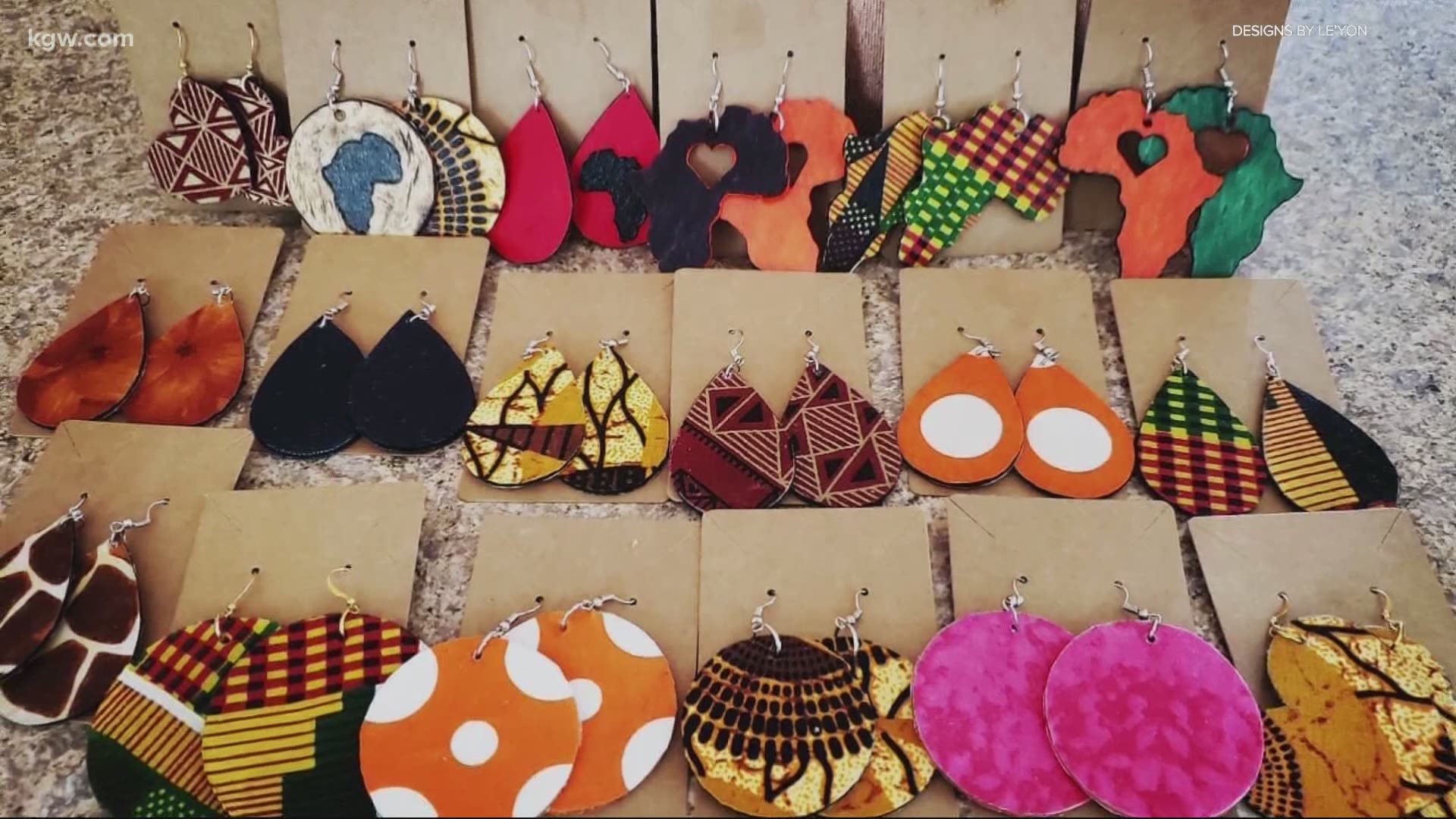PORTLAND, Ore. — This week is officially "Buy Native Week" in the City of Portland. It’s where people are encouraged to shop at small, local, Native businesses.
We spoke with People of Color who own small businesses in the Portland area who say when people buy from them, it's especially meaningful.
During the pandemic, Marcia McCoy is putting herself out there on social media, doing fun live Facebook videos every Friday to try to connect with customers. McCoy has five kids and does a little child care on the side but her main source of income is her business, Designs by Le’yon.
“We specialize in handmade fashion jewelry and accessories, one of a kind. You name it, we got it,” said McCoy.
Since COVID-19 hit, she’s had to change up her business model a bit. Because people are mostly staying indoors, with very few places to go where they’d wear jewelry, she’s also added custom tee-shirts to her business.
“My husband is a musician who's also self-employed. So we've been hit pretty much with this pandemic,” said McCoy.

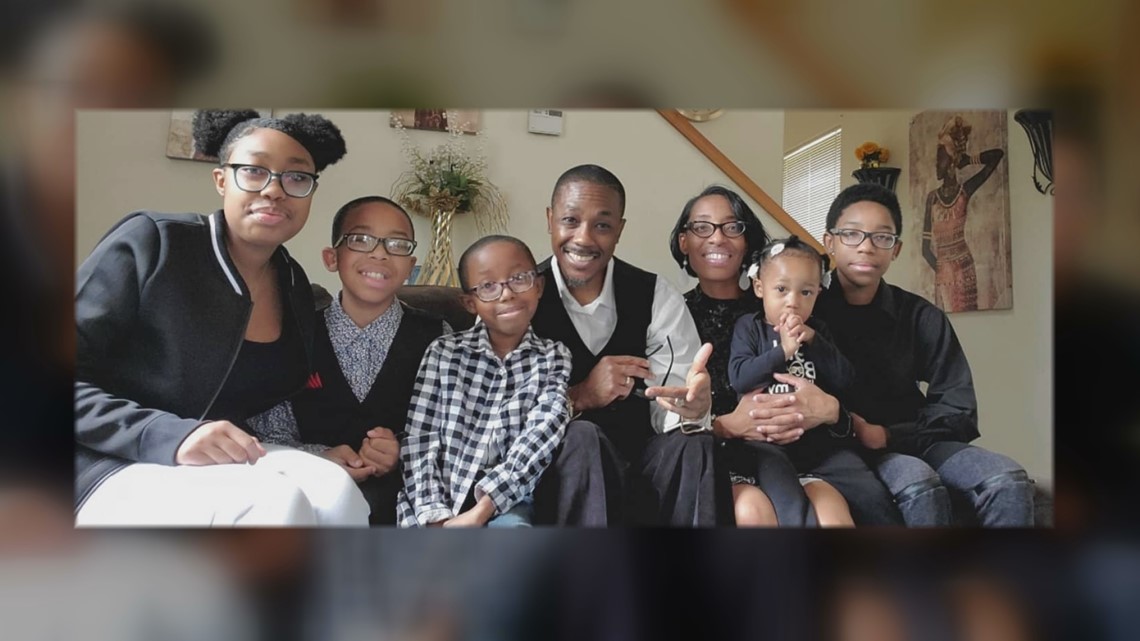
That’s why she said it’s so important for people to support small businesses in general. But there's deeper meaning for business owners who are People of Color, whose communities may not have had the same opportunities available to them than those more privileged.
Rodi Bragg, owner of Rose Alchemista, said trying to shop at businesses owned by People of Color is a tangible way to help.
“A lot of people feel really lost about ‘how can I help’ or they don’t feel safe going to a protest.' That’s [buying local is] a way to create real change. You’re putting money in someone’s pocket that they can then support their families,” said Bragg
Bragg’s business specializes in handcrafted skincare and perfumes. The products are influenced by her indigenous roots, where values include sustainability, a relationship with the land and plants, as well as ethical sourcing. Over Black Friday and the holiday weekend, she said she felt empowered by the sales she made.

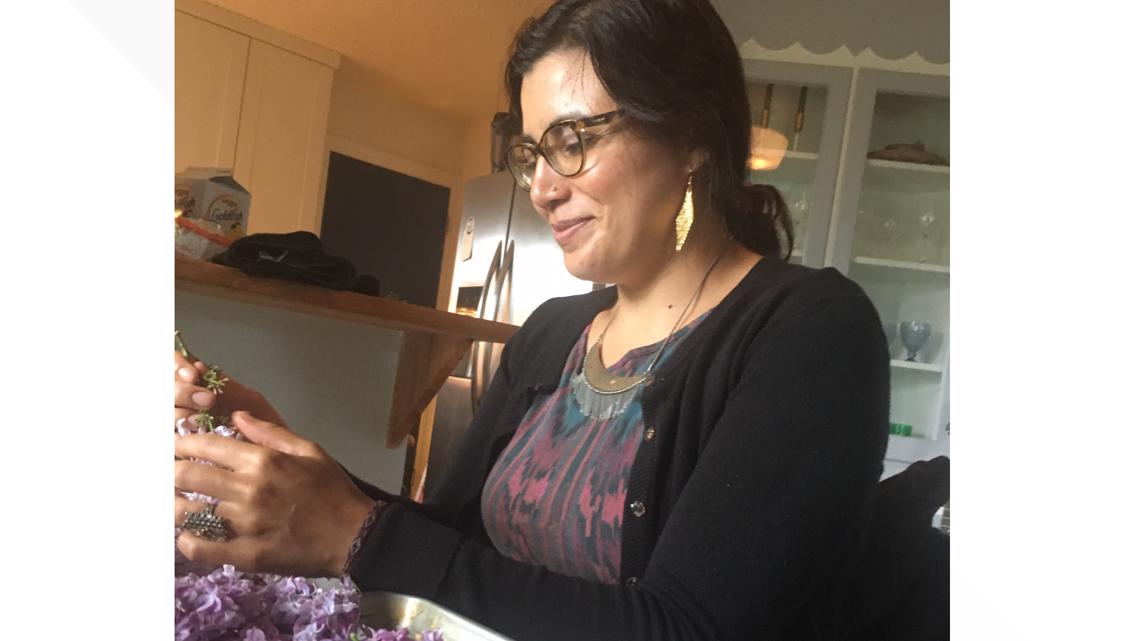
“That money all went to my rent and utilities. That was really exciting to feel like my business, all this money I made, [was] from what I made from my own hands,” Bragg said.
Shopping mindfully is also an opportunity to learn more about a culture different than your own.
Nicole Adams owns Wiwinu Enterprises, where she makes Indigenous-inspired jewelry, ornaments, and other products. She said Wiwinu, is her Native word for huckleberry. Adams said through her business, she is also a strategic communications consultant through her business.
“The colors on here are of the Camas flower and my tribe is one of the plateau tribes located on the other side of the mountains here. But Camas is part of the subsistence root digging that we do during the springtime,” said Adams as she described a pair of earrings she has for sale.

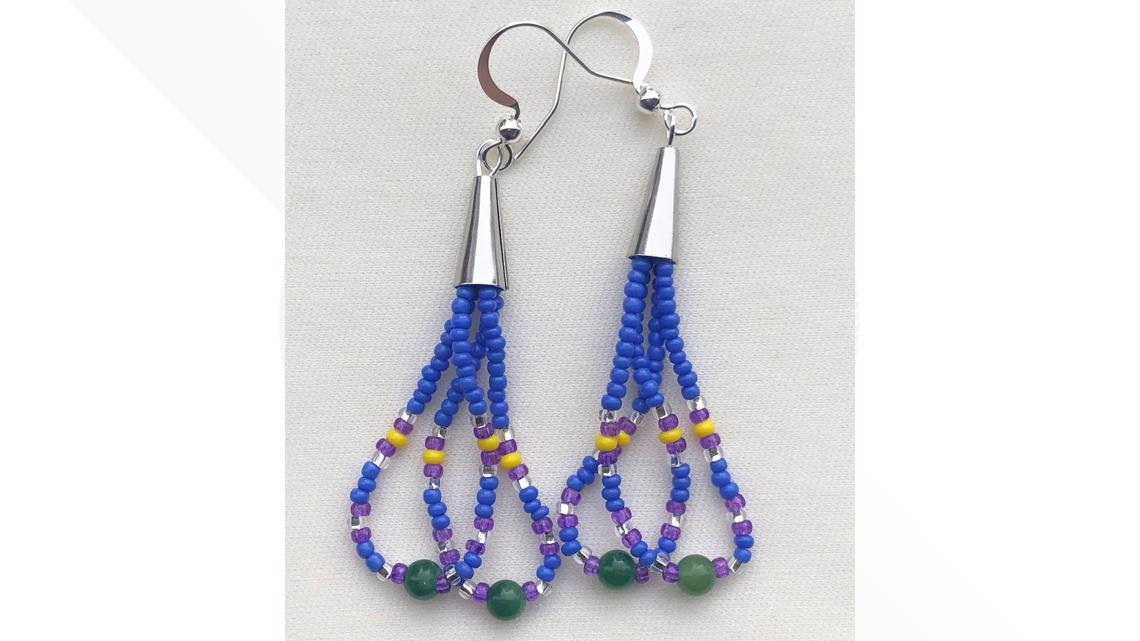
She said she misses in-person markets because they were an opportunity to have conversations with people about her culture. But the custom, handmade items people can now buy online still have stories attached to them and customers can often ask sellers about it directly.
“You’d be hard-pressed to find a piece of jewelry at my job or in other Native vendors’ shops that didn’t have a little story behind it or that wasn’t rooted in their cultural upbringing or their traditions,” Adams said.

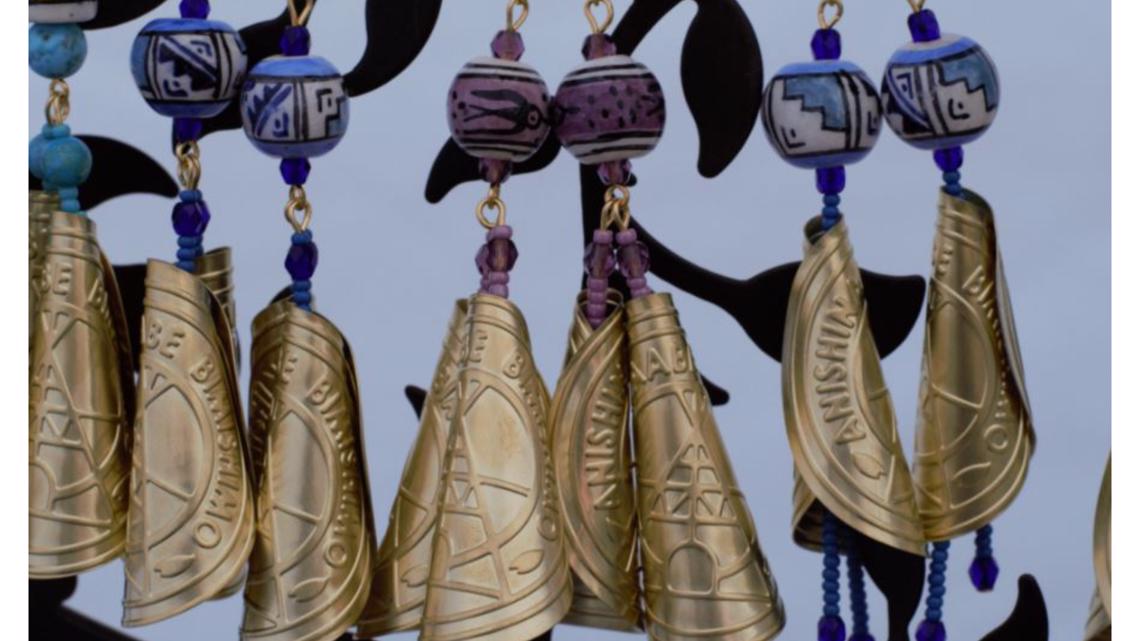
The owner of Indigenous Come Up, Lluvia Merello spending dollars locally also ensures cultural sensitivity. She said some bigger businesses might take elements of culture and profit off of it.
“Not only is that painful because it's often not accurate, number one, two, none of that money is going into Indigenous communities,” said Merello.
Over at Lunarcat Studios, Carolyn Woody, who makes origami ornaments and other Asian-inspired crafts, said this kind of conscious shopping can promote understanding.
“It's just one way to break down those walls,” she said.

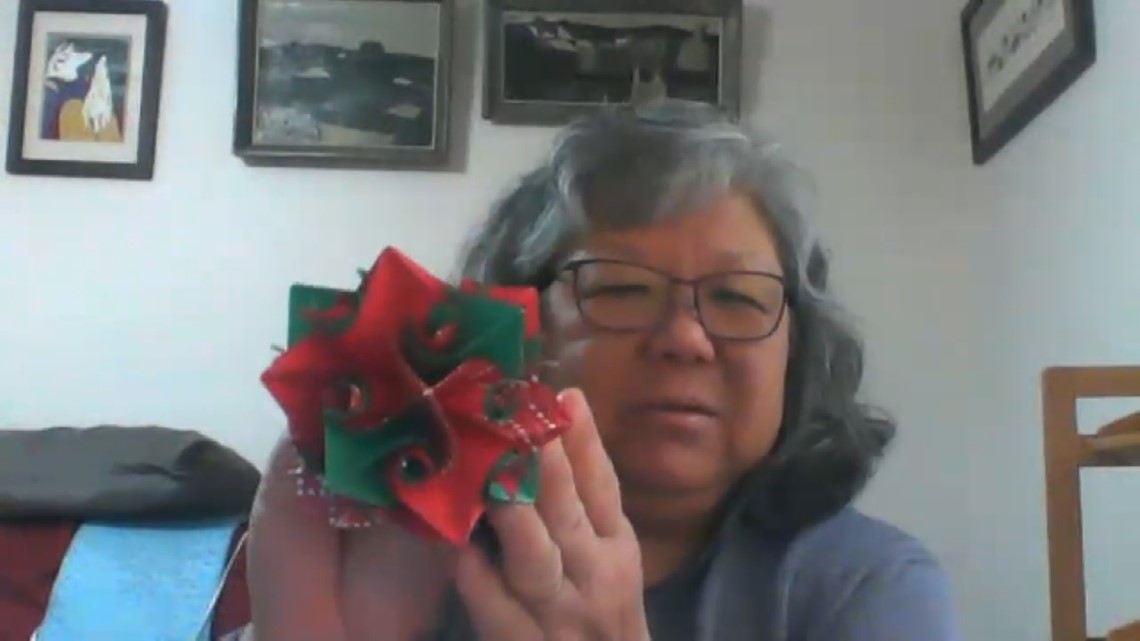
Adams said in a time when there’s been so much divisiveness, supporting small businesses owned by People of Color is community building. She said she feels supported by her community, especially because people have been reaching out, interested in purchasing her products.
“When my phone is blowing up with all of these orders, it’s overwhelming. But it also gives me reassurance in this community that we really stand behind those values of diversity, inclusion, and togetherness,” said Adams.
“When you support a small business, you're not just buying something. You're putting into their future,” said McCoy.

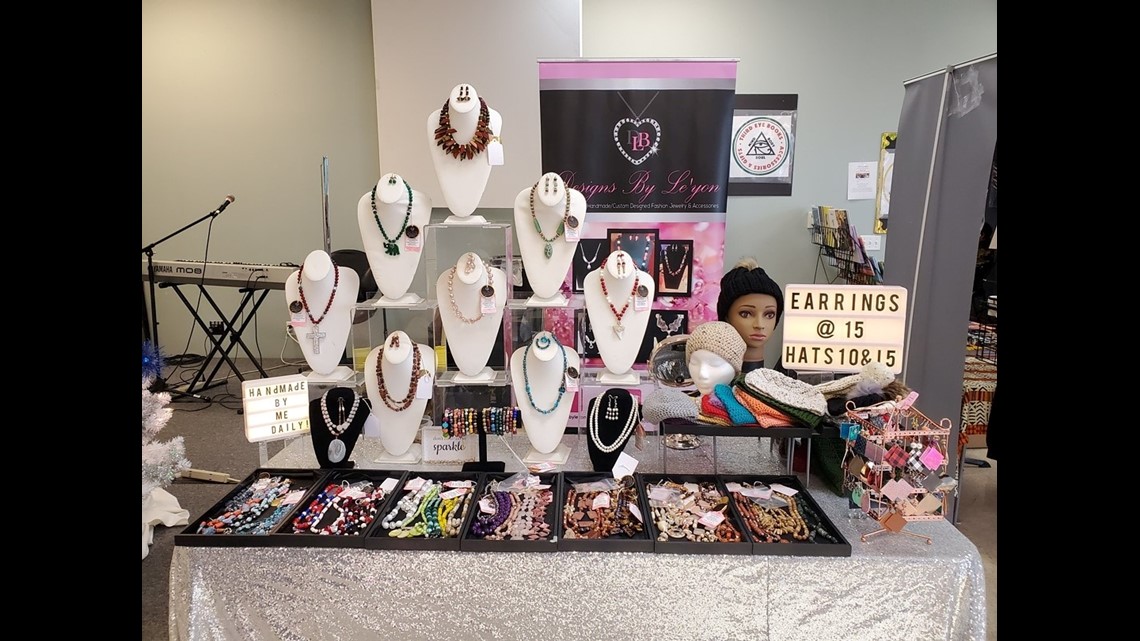
Various small business owners we spoke with also said that patronizing one small business often means supporting multiple local, small businesses because they collaborate or source materials from one another.
If you’d like to support Black, Indigenous, or Person of Color (BIPOC) small businesses, here are some resources:

